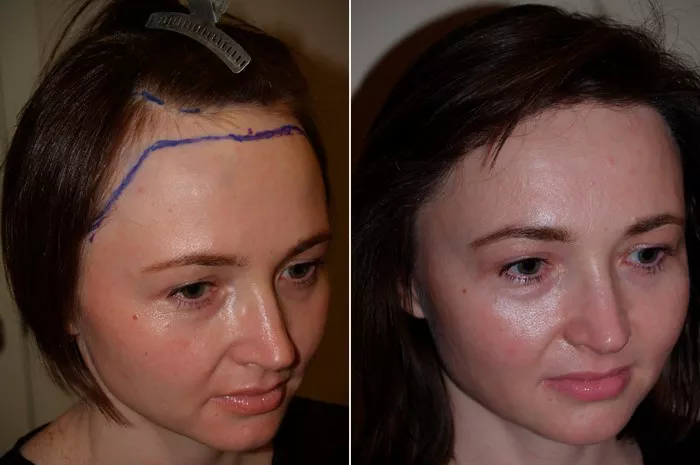Hair loss can be a source of frustration and self-consciousness for many individuals. Hair transplant surgery offers a potential solution by restoring hair growth in areas affected by balding or thinning. However, before undergoing a hair transplant, it’s important to understand the longevity of the results. In this comprehensive guide, we will explore the question: Are hair transplants permanent? We will discuss the factors that influence the permanence of hair transplants, potential risks, and important considerations to help you make an informed decision.
The Basics of Hair Transplant Surgery
Hair transplant surgery involves the removal of hair follicles from areas of the scalp that have abundant hair growth (known as the donor site) and transplanting them into areas with thinning or balding hair (known as the recipient site). The two primary techniques used in hair transplantation are Follicular Unit Transplantation (FUT) and Follicular Unit Extraction (FUE).
In FUT, a strip of hair-bearing skin is removed from the donor site, and individual follicular units are dissected under a microscope before being transplanted into the recipient site. FUE, on the other hand, involves the extraction of individual follicular units directly from the donor site and their transplantation into the recipient site.
Both FUT and FUE techniques have proven to be effective in restoring hair growth and achieving natural-looking results. However, the longevity of the results can vary depending on several factors.
Factors Influencing the Longevity of Hair Transplants
Several factors contribute to the longevity of hair transplants. Understanding these factors will provide insight into the permanence of the results. Here are the key factors to consider:
1. Genetic Susceptibility
Genetic factors play a significant role in hair loss and can impact the longevity of hair transplants. If you have a genetic predisposition to hair loss, it’s possible that transplanted hair follicles may be subject to the same pattern of thinning or balding over time. It’s important to manage your expectations and discuss the potential impact of genetics with your hair transplant surgeon.
2. Donor Site Selection
The choice of donor site is crucial for the success and longevity of hair transplants. The donor site should consist of healthy hair follicles that are not prone to thinning or balding. The back and sides of the scalp are common donor sites as they are typically less affected by male or female pattern baldness.
3. Surgical Technique
The surgical technique employed during the hair transplant procedure can influence the longevity of the results. Both FUT and FUE techniques can yield long-lasting outcomes when performed by skilled and experienced surgeons. The precise placement of the transplanted follicles and the surgeon’s attention to detail are important factors in achieving natural-looking results that stand the test of time.
4. Postoperative Care
Proper postoperative care is essential for the success and longevity of hair transplants. Following your surgeon’s instructions regarding medication, wound care, and activity restrictions is crucial. Protecting the transplanted area from excessive sun exposure, trauma, and irritation will help ensure the best possible results.
5. Age and Progression of Hair Loss
The age at which you undergo a hair transplant and the stage of your hair loss can impact the longevity of the results. Hair transplantation is generally recommended for individuals who have stabilized their hair loss. If hair loss continues to progress after a transplant, additional procedures may be necessary to address new areas of thinning or balding.
6. Overall Health and Lifestyle Factors
General health and lifestyle factors can also affect the longevity of hair transplants. Maintaining a healthy lifestyle, including a balanced diet, regular exercise, and stress management, can contribute to overall hair health. Avoiding smoking and excessive alcohol consumption can also help preserve the health of hair follicles.
Potential Risks and Limitations
While hair transplants are generally safe and effective, it’s important to be aware of potential risks and limitations. These include:
1. Inadequate Hair Density
Hair transplants aim to restore natural hair density, but it’s important to have realistic expectations. Transplanted hair may not reach the same density as the original hair, especially in cases of extensive hair loss.
2. Graft Survival
The success of a hair transplant depends on the survival and growth of transplanted hair follicles. While modern techniques have improved graft survival rates, there is always a small risk of graft failure, resulting in the loss of transplanted hair.
3. Additional Hair Loss
Hair loss may continue to progress in areas not addressed by the transplant. This can result in a mismatch between the transplanted hair and the surrounding natural hair over time.
4. Future Hair Loss
Hair transplants do not prevent future hair loss in areas not treated during the procedure. Ongoing hair loss may require additional procedures or treatments to maintain a consistent appearance.
Conclusion
Hair transplants can provide a long-term solution for hair loss, but it’s important to manageexpectations and understand the factors that influence their permanence. While hair transplants can yield long-lasting results, genetic factors, surgical techniques, postoperative care, age, and overall health play significant roles in the longevity of the outcomes.
By choosing a reputable surgeon, following postoperative care instructions, and maintaining a healthy lifestyle, you can optimize the longevity of your hair transplant results. Regular follow-up appointments with your surgeon will allow for ongoing evaluation and necessary adjustments, if needed, to address any changes in your hair growth.
While hair transplants may not be entirely permanent due to genetic factors and potential ongoing hair loss, they offer a long-term solution that can significantly enhance your confidence and self-esteem. With proper understanding, realistic expectations, and careful consideration of the factors involved, you can make an informed decision about hair transplantation as a viable option for addressing hair loss.


